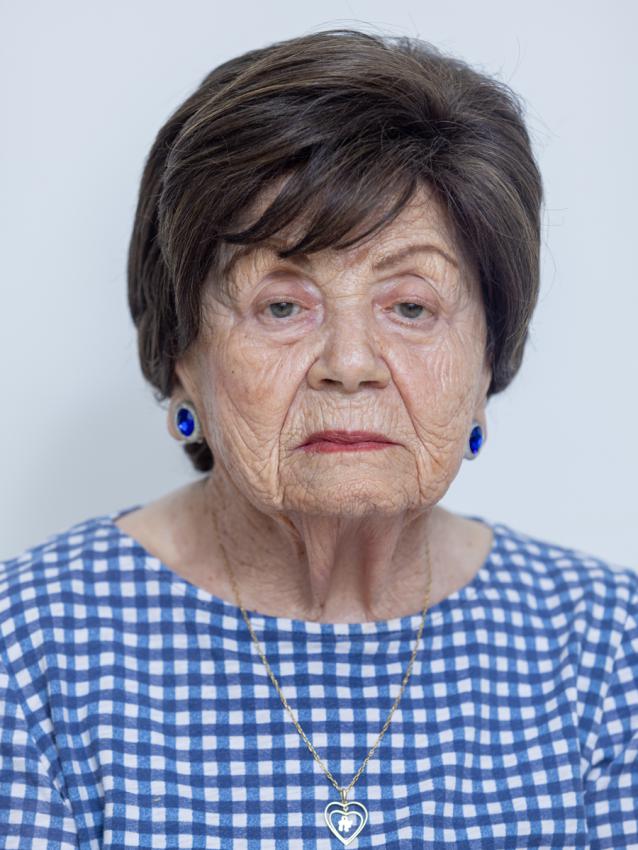Pnina Hefer was born in the village of Nuşfalǎu in Romania and had twenty brothers and sisters. Her father Anshel Asher Weiss was the community rabbi, and the family lived next to the synagogue. The Weiss family had a Zionist outlook and spoke Hebrew. Pnina’s parents encouraged her to learn foreign languages and acquire general knowledge in addition to her Torah studies.
In 1940, Hungary gained control of the area, and when the Germans entered Hungary in March 1944, the Jews were subjected to abuse and restrictive decrees. Locals collaborated in these public acts of humiliation, but from time to time, one of their neighbors would still bring the family provisions that were forbidden to Jews.
In May 1944, the village Jews, including the Weiss family, were rounded up and sent to the Szilágysomlyó ghetto. They were herded into an open field, where they were forced to make tents out of their clothes. Jews were beaten and tied to trees. Beards and sidelocks were forcibly shaved, and the men were ordered to make sandals out of the straps of their tefillin (phylacteries).
Some three weeks later, Pnina and her family were deported to Auschwitz. On the train, her father told the children that if they were separated, they should make every effort to reach Eretz Israel (Mandatory Palestine). After exiting the cattle car, Pnina caught sight of her mother’s haggard expression before they were separated at the selection. Most of the Weiss family were murdered in the gas chambers. Pnina was left with her sister Bluma.
Pnina and Bluma were in Auschwitz for five and a half months and experienced multiple selections. They bartered their bread rations for a prayer book that they hid, and they would pray with the other prisoners in their block.
In late 1944, Pnina and Bluma were transferred to Bergen-Belsen, where they fasted on Yom Kippur. They were sent to perform forced labor at an ammunition factory in Salzwedel and were liberated by US soldiers on April 14, 1945.
The sisters traveled to Yugoslavia and boarded the Ma’apilim (illegal immigrants) vessel Knesset Israel in November 1946. The British captured the boat and threw the girls’ precious prayer book into the sea. A photograph of the two girls arguing with the British was published in a newspaper, and Pnina and Bluma were recognized by two of their brothers, who had survived and had already immigrated to Eretz Israel.
Pnina and Bluma were sent to Cyprus and eventually reached the Atlit detention camp in September 1947. Pnina moved to Jerusalem and studied at a teachers’ seminary, finally fulfilling her childhood dream of being a teacher in Israel. She was eventually reunited with Bluma and four other siblings who had survived.
Pnina married Jacob, and they traveled to Tunisia as educational emissaries on behalf of the State of Israel. Later, they both taught at a Jewish school in Argentina, and when they returned to Israel, Pnina became the principal of the Masuot school in Bnei Brak.
Pnina is an active Holocaust survivor who tells her story to a wide range of audiences, and each year, she celebrates the day of her liberation together with her entire family.
Pnina and Jacob have three daughters, sixteen grandchildren, and more than forty-five great-grandchildren. Their three daughters have continued the family tradition and are also teachers, and all of Pnina’s descendants live in Israel.


